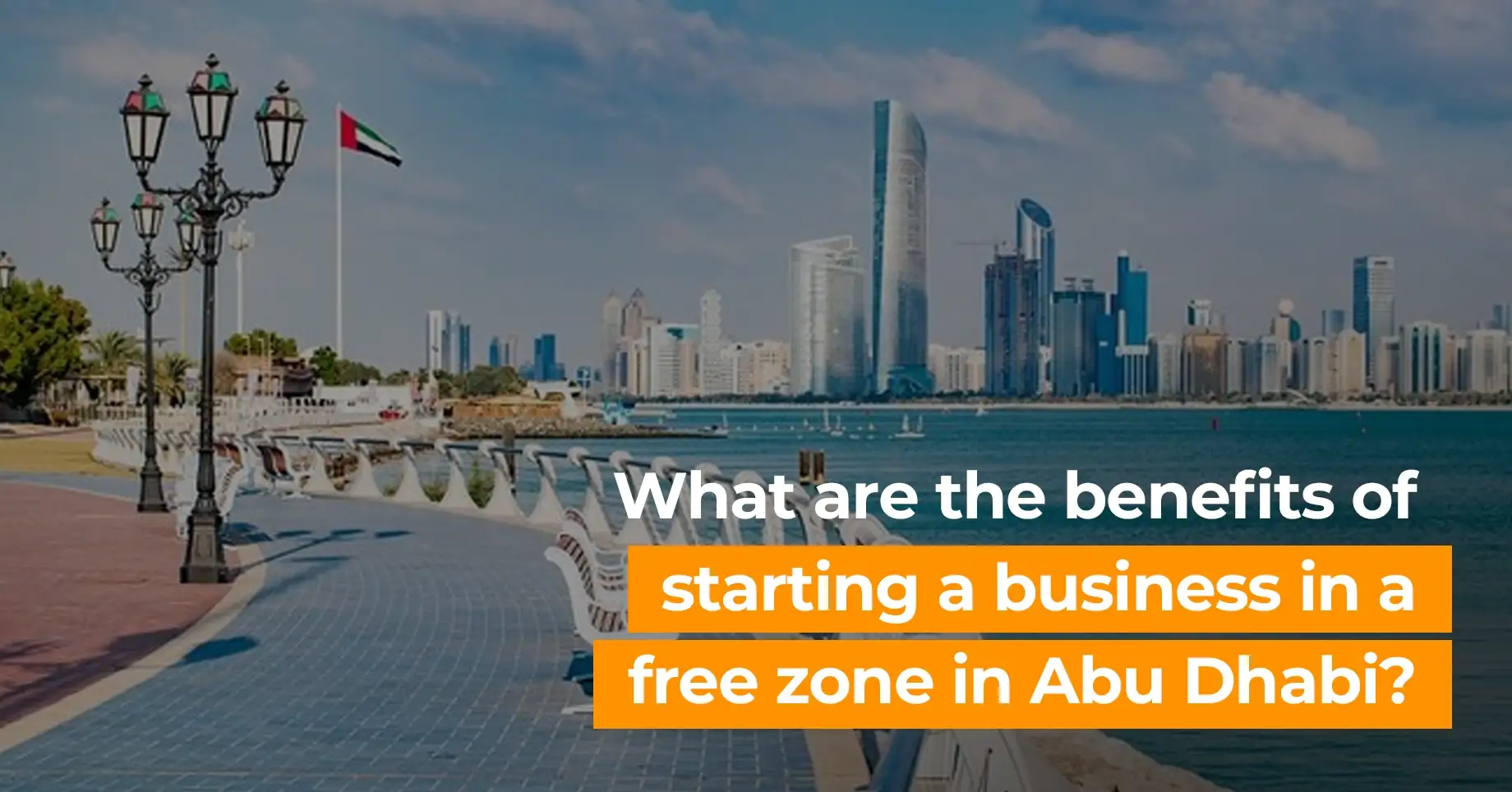Navigating the business landscape in Abu Dhabi has never been more appealing, especially with the burgeoning opportunities in the city’s Free Zones. As 2024 unfolds, the advantages of establishing a venture in these dynamic economic hubs are increasingly apparent. For entrepreneurs, multinational corporations, and startups alike, understanding the distinct benefits of Abu Dhabi Free Zones can significantly influence your decision-making process. Here’s an in-depth look at why setting up a business in these zones is a smart move this year.
1. Strategic Location and Connectivity
Abu Dhabi Free Zones are carefully positioned to offer unparalleled access to global markets. Nestled close to critical transport links like Abu Dhabi International Airport and the Khalifa Port, these zones provide exceptional connectivity. This geographical advantage translates into efficient logistics and shorter transit times, facilitating easier access to your target markets. With seamless connectivity, businesses can effortlessly integrate into international trade networks.
2. 100% Foreign Ownership
One of the standout benefits of operating within an Abu Dhabi Free Zone is the opportunity to retain complete control over your business. Unlike mainland UAE businesses that typically require a local partner, Free Zone companies can be wholly owned by international investors. This provision allows for unrestricted control over operations and strategic decisions, empowering entrepreneurs and corporations to drive their business without compromise.
3. Tax Incentives and Financial Benefits
Free Zone business setup in Abu Dhabi comes with an array of financial perks designed to enhance profitability:
-
Zero Corporate Tax: Most Free Zones offer corporate tax exemptions for specified periods, often renewable, ensuring that your business can reinvest more of its earnings.
-
No Personal Income Tax: Employees working in these zones are not subject to personal income tax, making it easier to attract top-tier talent.
-
Customs Duty Exemptions: Benefit from exemptions on import and export duties reducing the overall cost of trading goods and materials.
4. Streamlined Business Setup
The process of business setup in Abu Dhabi Free Zone is tailored to be efficient and user-friendly:
-
Fast-Track Registration: The registration process is streamlined for rapid business establishment.
-
Flexible Office Solutions: Choose from a variety of office spaces, including virtual offices and fully equipped premises, catering to businesses of all sizes.
-
Comprehensive Support Services: From administrative assistance to logistical support, Free Zones offers a range of services to ensure smooth operations. If you’re concerned about the Abu Dhabi Free Zone license cost, it’s competitively structured to maximize your investment value.
5. Access to a Diverse Talent Pool
Abu Dhabi Free Zones attract a global workforce, providing access to a rich and diverse talent pool. The presence of numerous multinational companies and innovative startups fosters a vibrant professional environment. This diversity enhances creativity, and productivity, and provides a global perspective, crucial for driving your business forward.
6. Modern Infrastructure
The infrastructure within Abu Dhabi Free Zones is cutting-edge, designed to meet the demands of contemporary businesses:
-
Advanced Technology: High-speed internet, modern telecommunications, and robust IT support are standard features.
-
Business-Friendly Environment: Facilities such as conference rooms, meeting spaces, and business lounges are available to create a conducive business environment.
7. Networking and Collaboration Opportunities
Operating within an Abu Dhabi Free Zone opens doors to a wealth of networking and collaboration opportunities. The zones host numerous industry events, exhibitions, and seminars, providing valuable platforms for connecting with potential partners, clients, and industry experts. Engaging in these activities can lead to meaningful business relationships and collaborative ventures.
8. Compliance and Regulatory Support
Abu Dhabi Free Zones offers a supportive regulatory framework that simplifies compliance. The Free Zone authorities assist with navigating legal requirements, ensuring your business adheres to local regulations and industry standards without the bureaucratic red tape often associated with mainland operations.
FAQs
1. What are the key benefits of Abu Dhabi Free Zone company formation?
Key benefits include 100% foreign ownership, tax incentives, streamlined business setup, modern infrastructure, and access to a diverse talent pool.
2. How does the tax system work in Abu Dhabi Free Zones?
Businesses in Free Zones typically benefit from zero corporate tax, no personal income tax, and customs duty exemptions.
3. Can I fully own my business in Abu Dhabi Free Zones?
Yes, you can retain 100% foreign ownership of your business in Abu Dhabi Free Zones.
4. How long does it take to set up a business in a Free Zone?
The setup process is designed for efficiency, with fast-track registration and flexible office solutions facilitating quick establishment.
5. Are there any specific industries that benefit more from operating in Abu Dhabi Free Zones?
While Free Zones cater to various industries, sectors such as technology, logistics, manufacturing, and trade particularly benefit from the specialized facilities and services available.
Conclusion
Embarking on a free zone business setup Abu Dhabi journey in 2024 offers plenty of advantages, from significant tax incentives and 100% foreign ownership to cutting-edge infrastructure and a supportive regulatory environment. Whether launching a new venture or expanding an existing one, Abu Dhabi Free Zones provide a fertile ground for business growth and success. By capitalizing on these benefits, you can strategically position your business for long-term success and thrive in the competitive global marketplace. If you're considering Abu Dhabi Free Zone company formation or seeking to understand the Abu Dhabi Free Zone license cost, the opportunities are abundant and well-supported.
